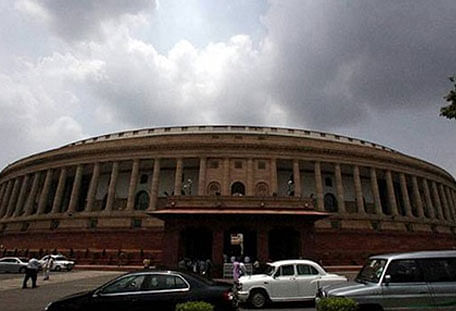
Parliament on Thursday finally approved two landmark legislation proposed by the Modi government to shift the responsibility of appointment and transfer of judges from a Supreme Court collegium to a six-member commission.
The National Judicial Appointments Commission Bill, 2014, and the accompanying Constitution Amendment Bill that grants the panel a constitutional status will replace the 20-year collegium system which, of late, has come under severe criticism for failing to prevent those accused of corruption being made judges.
The new system of appointment of judges will come into force after ratification of the legislations by 50 per cent of the state legislatures, which could take up to eight months.
After ratification, the government will send them to the President for his assent.
The commission will include the chief justice of India (CJI), the next two most senior judges of the Supreme Court, the law minister, and two eminent persons. The Constitution Amendment Bill was cleared by the Rajya Sabha with 179 votes in favour and the abstention of noted lawyer Ram Jethmalani.
Later, the Upper House passed the Bill for setting up of a National Judicial Appointments Commission, which will appoint and transfer judges of the Supreme Court and 24 high courts. The eminent persons in the commission will be selected by a panel comprising the Prime Minister, chief justice of India and Leader of the Opposition or leader of the largest opposition party in the Lok Sabha.
The legislation are perceived as giving the government a key role in the selection of judges. However, Law Minister Ravi Shankar Prasad said the measure is not being brought in haste. “This House respects the independence of the judiciary and this House also respects the power of Parliament,” he said.
Leader of the Upper House and Finance Minister Arun Jaitley asserted that the bill was only seeking to restore tenets of the Constitution which specify that Supreme Court judges would be appointed by the executive.
Going further, Jaitley asserted that the independence of the judiciary had to be maintain while considering the views of the elected government, as both are part of the basic structure of the Constitution. “Is it not an aberration if its views are not considered? The balancing act is to let this power be collectively exercised,” he said.
However, Jethmalani vehemently opposed the bill and termed its arrival as a “betrayal” on the part of the government.
Deccan Herald is on WhatsApp Channels| Join now for Breaking News & Editor's Picks